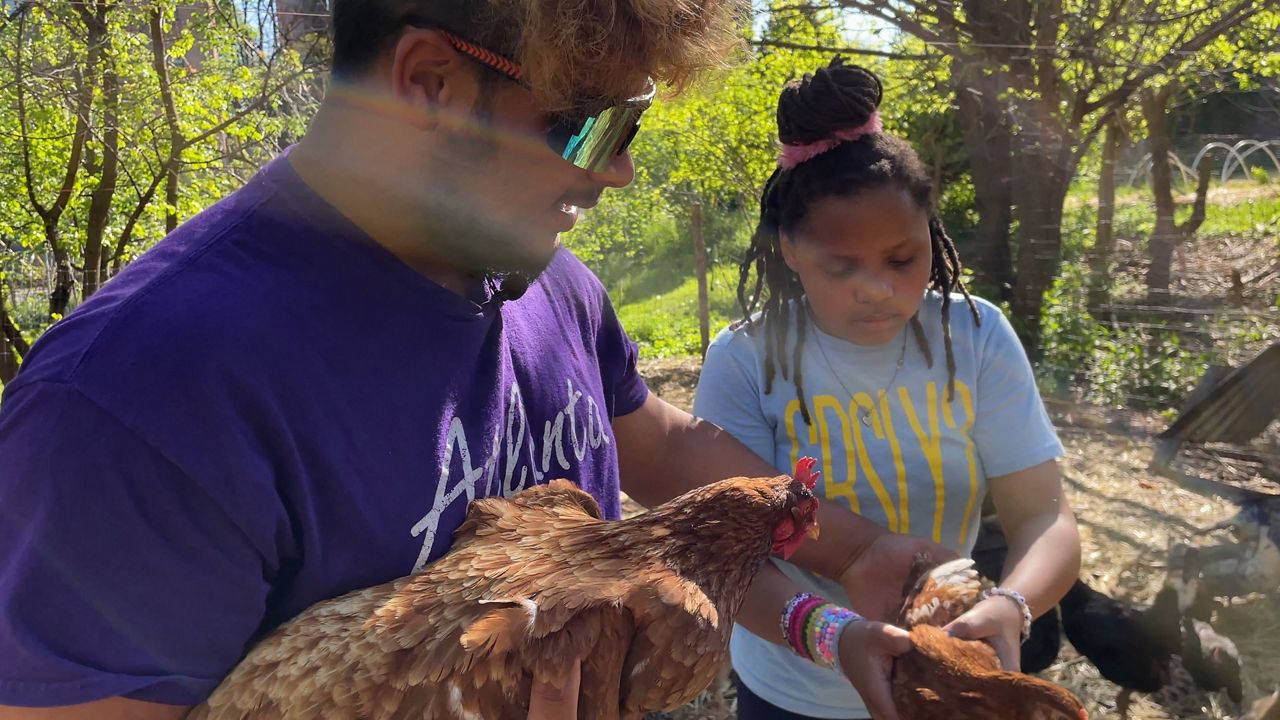
Dedicated to regenerative agriculture, Whitney explained that they aim to farm their land in a way that’s always improving it.
“Compost manure is the only fertility we add to the land. We farm in unison with nature instead of in opposition to it,” she said. “We rotate our cows on pasture every 24 hours from April to December. We honor the cow as an herbivore and steward the land in the best way possible.”

The couple took their first step into farming by renting 10 acres of land.
“We had meat — chickens and sheep — and started canning food and buying from local farmers’ markets,” Whitney recalled.
They then purchased a 12-acre farm and launched their new business — grass-fed beef and dairy cows.
In 2017, Dan and Whitney moved to a 40-acre farm and quickly outgrew it as word spread and their business expanded. The following year, they bought their current farm, which consists of 80 acres on which they raise their dairy cows for herd shares, along with beef and pork.

“Farming was initially how we sought to integrate faith and family into this life where we could spend our days together,” Dan explained. Now raising their four children on the farm, the couple said they are grateful for the ups and downs they experience.
“Every decision, we look through the lens of what’s best for our family and how we should be treating the land and discerning all of it,” he said. “We could do more on this land, but our kids are relatively young, and we want to enjoy them and not have them resent the farm. We don’t assume they’ll all end up farming, but they know where their food comes from and how it got here. And they know how to work hard.”

(Story continues below)
Subscribe to our daily newsletter
Whitney agreed.
“Our 3-year-old comes out to milk no matter the weather,” she said. “His ‘pay’ is the hot chocolate packet he brings out in his mug so he can pick the cow he wants to milk. Our kids have been a part of this their whole lives. Their definition of ‘normal’ may differ slightly from most kids. We try to keep them away from electronics, and instead, they play with horses, calves, and ATVs, and they explore and make forts.”
Whitney explained that the driving factor in the life of the family and the farm is the faith that brought them to step into this life years ago.
“The first place we encounter God is in the family, so we’re always asking ourselves how we reflect that in the family,” she said. “The home is the center of our family and livelihood, not just for consumption. We talk about decisions in front of the kids because we want them to see that their values and faith should drive them, not what’s easiest or most convenient. Ultimately, farming is a journey of faith. There’s so much out of your control — it smacks you in the face. I can’t control when the rain comes. Farming is the best spiritual teacher; you have to relinquish the feeling that you can control and learn to roll with it.”

“Our kids know what sacrifice looks like, and that oftentimes we need to put other needs over ours,” she continued. “Love sometimes means something else has needs, and I’m here to help. This is the reality of farming: On Christmas mornings, our kids open presents and then we milk for three hours, or on any given day, breakfast might have to wait because a calf is being born.”
Source: catholicnewsagency.com



































